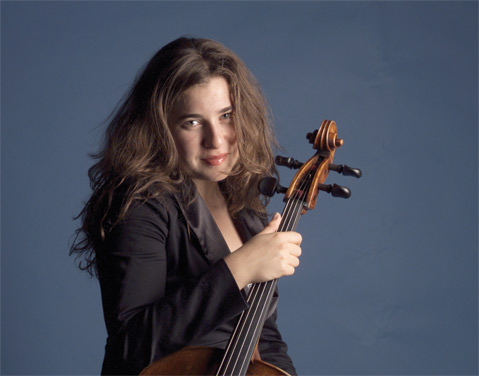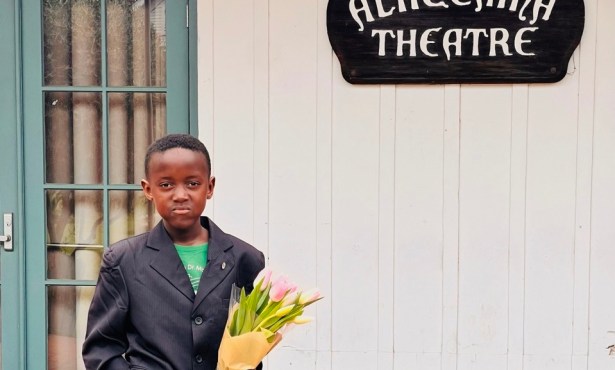Alisa Weilerstein with the St. Petersburg Philharmonic
Young American Cellist Tackles Shostakovich with Russian Orchestra

Alisa Weilerstein, the astonishingly expressive 28-year-old cellist, has vivid memories of her most recent previous performance in Santa Barbara. Then again, it was only last February 9. The setting was the Music Academy’s Hahn Hall, where she performed two of Bach’s Solo Cello Suites and joined pianist, and childhood friend, Gabriel Kahane for the world premiere of an intensely moving song cycle.
It wasn’t her first local engagement: In the mid 2000s, she played a set of concerts with Camerata Pacifica and performed an evening of trios with her violinist father and pianist mother. But it revealed her as an artist who feels an urgent need to communicate, as well as one who is willing to take risks. It’s no wonder she feels such a kinship with Dmitri Shostakovich.
“I was probably about 8 when I can first remember hearing Shostakovich,” she said. “I remember playing his Second Trio with my parents when I was 11 or 12. Of course, I listen to it differently now. But I was always very attracted to his music, even at a young age.”
So attracted, in fact, that she majored in Russian history at Columbia University, focusing on the Soviet era. At the same time, she was studying music at the Juilliard School, and in 2004—just before her graduation—she had a one-on-one, 90-minute lesson with one of the greatest cellists of all time, Mstislav Rostropovich.
Their focus was Shostakovich’s Cello Concerto No. 1, which Weilerstein will perform with the St. Petersburg Philharmonic on Wednesday, March 23, at the Granada. Shostakovich wrote the piece for Rostropovich, his close friend, in the late 1950s. Both were living in the Soviet Union, where no dissent—political or artistic—was tolerated.
“The first thing Rostropovich told me was I was suffering outwardly too much,” she recalled. “You can’t express the emotions of this piece the way you express them in Tchaikovsky, where his guts are out on the table. To play Shostakovich like that is completely wrong. It’s taut on the surface, with a feeling of forced control.”
Forced control: That’s a concept familiar to anyone who has lived under a repressive regime. Shostakovich, who had strongly displeased Joseph Stalin some years earlier, was acutely aware he could be sent off to Siberia—or worse—if he, or his music, displeased the authorities. So he assumed a public persona of contentment, even as he lived in fear. According to Weilerstein, much of his music reflects this duality.
“Shostakovich’s music has a visceral intensity,” she explained. “On the outside, you have to wear a poker face. You can’t appear to care. But underneath, you’re in absolute agony.”
“Listen to the first movement of the First Cello Concerto. It’s a motor: The rhythm just never stops. There’s this black humor everywhere. But beneath all of that machinery is this incredible suffering.”
For all her ability to subtly convey suffering, Weilerstein is relaxed and joyful in conversation, with an easy laugh. While she is rapidly rising to superstar status—she just signed a contract with Decca Records—she comes across as anything but egocentric.
“Learning to communicate in the most honest way possible is something you work on your whole life,” she said. “You want to find the right balance between the personality of the performer and what exactly the composer wrote. That’s a constant balancing act.”
“When a performance has gone really well, I feel I have discovered new things in the music and communicated them effectively to an audience,” she added. “That, to me, is the most rewarding thing: to be able to give something so profound and beautiful and, hopefully, moving.”
4•1•1
CAMA presents the St. Petersburg Philharmonic with Alisa Weilerstein, conducted by Nikolai Alexeev, at 8 p.m. on Wednesday, March 23, at the Granada, 1214 State Street. The program also includes Brahms’s Fourth Symphony. Tickets are $38-$103. For more info, call 899-2222 or visit camasb.org.



